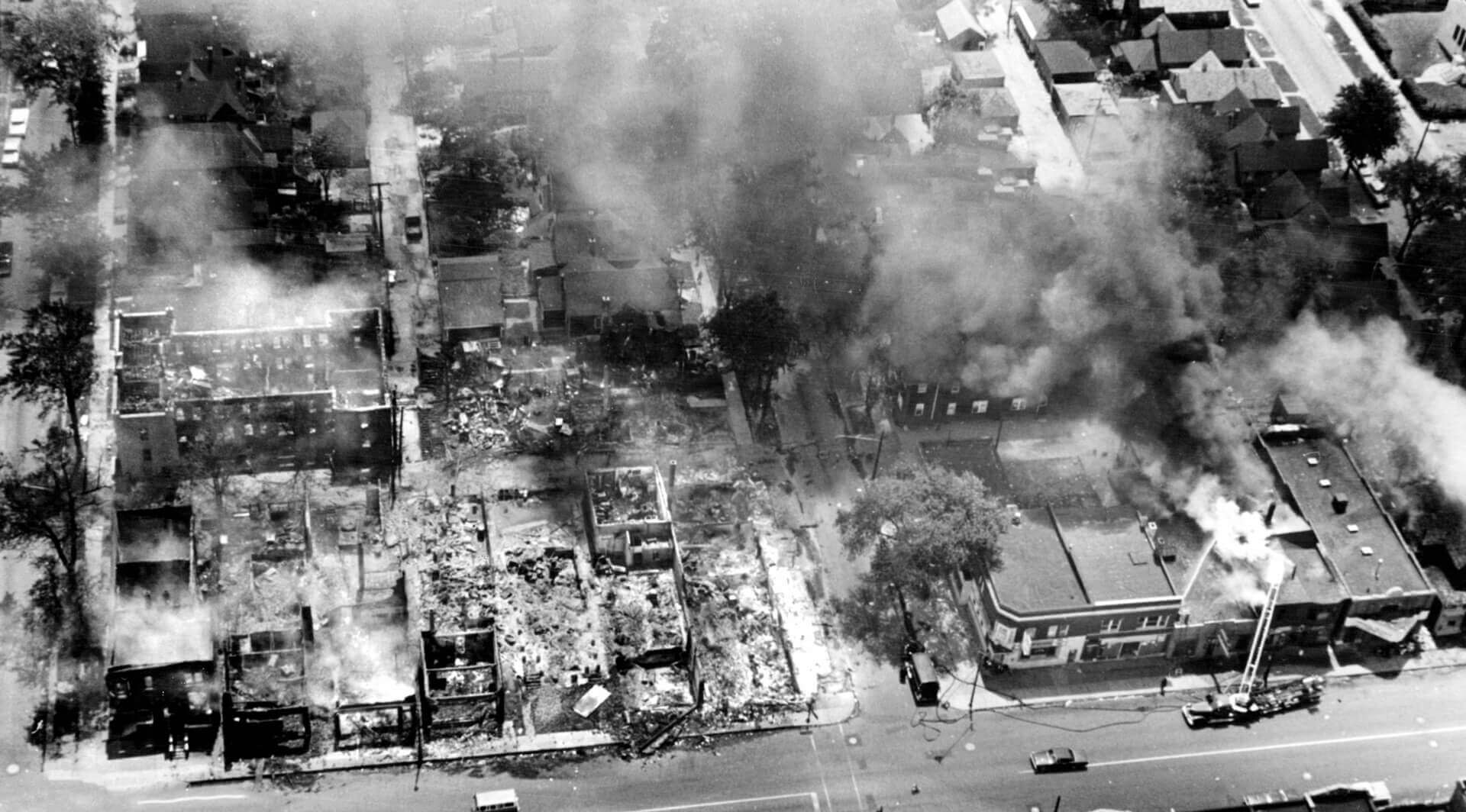
Fifty years ago, during the summer of 1967, the City of Detroit erupted into one of the deadliest and most destructive civil uprisings in U.S. history.
By the time the bloodshed, burning, and looting ended after five days, 43 people were dead, 342 were injured, nearly 1,400 buildings had been burned, and some 7,000 National Guard and U.S. Army troops had been called into service to quell the violence.
Like most who lived through the riots, one 1968 Concordia Ann Arbor graduate found herself forever changed by her summer spent just a few miles from the heart of the scene.
Alice (Flicker) Hedt (’68) still remembers the moment she was first endeared to urban ministry.
She was 12 years old and sitting in the living room of her Longmont, Colorado, home watching television when she saw Martin Luther King Jr. come onto the screen. Even through the fuzzy black and white picture on the 16-inch box, MLK came alive; his words “pierced” her, Alice recalls.
A product of a strong Lutheran upbringing, Alice grew up secure in the knowledge of a foundational principle of Scripture: Salvation is a free gift; it cannot be earned through good works. As assuring as that concept was, Alice admits she struggled with how to express the gift through her actions.
“I never quite understood until watching Martin Luther King Jr. that being a Christian and the words of Jesus had a context beyond our small town, and carried with it some responsibilities to the broader community and world,” Alice says.
So when an opportunity came six years later—the summer after her first year of attending Concordia Ann Arbor—for her to live and work within inner-city Detroit, Alice was drawn to it. Little did she know that opportunity would place her amidst one of the most violent urban uprisings in American history and provide her with practical training for a life of service to Christ in urban settings, alongside her future husband.
It was 50 years ago, the summer of 1967. Alice had landed a job at a regional newspaper in Detroit and was in need of lodging. A Concordia staff member, Deaconess Jacqueline Haug, connected Alice with Burton and Norma Everist, who lived on 30th Street in downtown Detroit, near the LCMS church where Burton served as pastor at the time.
Soon after her job began, the 1967 Detroit Riot erupted. Alice says she never felt fearful or unsafe while living with the Everists, but the summer afforded her many opportunities to soak up Norma and Burton’s example in the midst of the turmoil.
“Burton and Norma were a part of the community,” Alice said. “Their friendships were in the community. They engaged with the neighbors. They raised their family there. I don’t think I ever consciously thought about it, but it was clear: This is how you do urban ministry.”
Others at Concordia also became involved in the aftermath of the Detroit Riot. Haug initiated an effort to transport Concordia students to Detroit on a regular basis to participate in ministry and service.
For about three years after the riot, two teams of Concordia students traveled weekly to the inner city for weekend stays with the Everists. The teams helped at The Green Tree Coffee House, an urban coffee house started by a group of Lutherans and Baptists that provided the setting for provocative discussions with people in the neighborhood; they offered their services for clean-up efforts, tearing down fire-prone garages; and they provided tutoring for inner-city youth, and helped with the church’s neighborhood outreach program. Alice’s husband, and Detroit native, Fred Hedt (’68), helped with the latter for a summer.
Since then, Alice and Fred have continued their service to urban and underserved populations. For the past 21 years, Fred has served as pastor at Ascension Lutheran Church, located just outside of Washington, D.C. The church is brimming with diversity in every sense of the word—age, race, and economic class.
Alice and Fred are quick to express their love of their diverse church. They’re also quick to advocate for more ministries of this sort throughout the nation and world.
“I see the Church at large struggling with the riots in Baltimore; in Ferguson,” Alice says. “We need to remind ourselves that it takes ongoing local parish involvement in the community to effectively address the larger-scale issues.”
In addition to fulfilling her vocation as a pastor’s wife, Alice has devoted herself to addressing justice issues in long-term care, and advocating for the rights of residents—including the 72 percent of nursing home residents who are on Medicaid—and the disparities in care experienced by people of color. She has worked on the national level directing the National Ombudsman Center and as executive director of the National Citizens’ Coalition for Nursing Home Reform.
She credits her time with the Everists for helping prepare her for her future callings.
“Being with Burton and Norma taught me to embrace and enjoy diversity, and to better understand issues of poverty and racism,” Alice says. “When I was with them, I finally understood that faith and action coinciding is not only consistent with Scripture, it’s a necessary way of life for me as a Christian.”
The fall 2017 Arbor Light magazines hit mailboxes the first week of October. If you are not on our mailing list, but are interested in receiving a free copy, call 734-995-7317.
— This story is written by Kali Thiel, director of university communications for Concordia University Ann Arbor and Wisconsin. She may be reached at kali.thiel@cuw.edu or 262-243-2149.
If this story has inspired you, why not explore how you can help further Concordia's mission through giving.